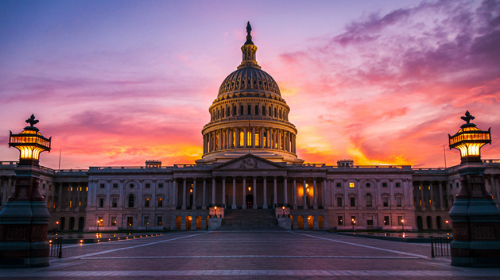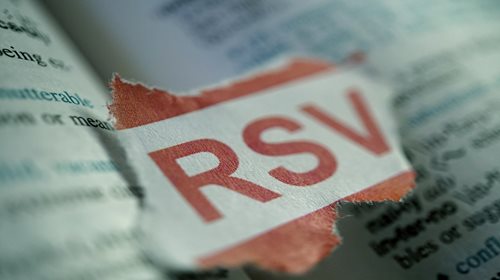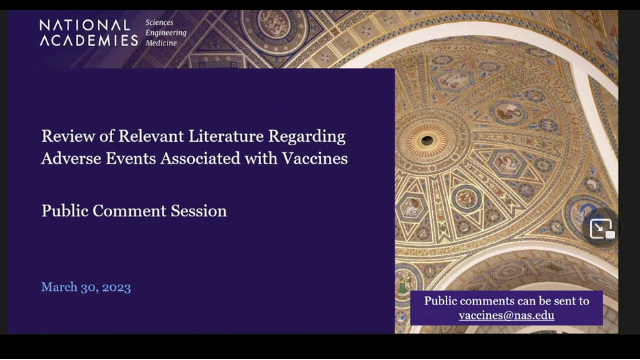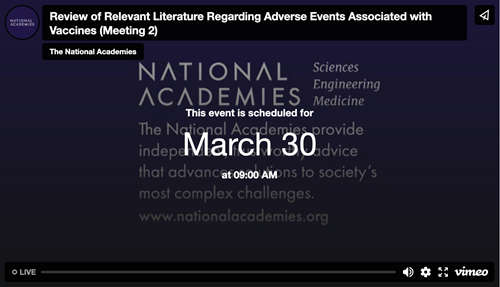
Every so often, a study is published that accurately informs the public discussion about the relationship between vaccination and health. This is the case with "A Longitudinal Analysis of the Effect of Nonmedical Exemption Law and Vaccine Uptake on Vaccine-Targeted Disease Rates," which was co-authored by Vicky Pebsworth-Debold, PhD, RN, and published in the February issue of the American Journal of Public Health.
After conducting a comprehensive analysis of state vaccine exemption and disease incidence data, the study authors concluded that there is no or little measurable effect of stricter vaccine exemption standards on infectious disease incidence in states. This study contributes important information to the small body of empirical evidence on this topic.
"The Devil is in the Details"
Pebsworth-Debold, a pediatric ICU nurse with PhDs in both public health and nursing, noted that literature on this topic is limited. As an expert in health research methods with knowledge related to infectious diseases, vaccine effectiveness and state laws, she also collaborated on the study to help frame it to inform public health policy.
Across the country, state legislators are being pressured by lobbyists connected with pharmaceutical and medical trade groups to pass laws to eliminate or restrict the legal right to file and receive vaccine exemptions for sincerely held religious and conscientious or philosophical beliefs. "Presumably, these efforts are based on the belief that making access to and use of non-medical exemptions will decrease communicable disease rates," Dr. Pebsworth-Debold said.
In an effort to position the topic adequately, for example, Dr. Pebsworth-Debold argued for the use of the phrase "vaccine-targeted diseases" (VTD) instead of the routinely used phrase "vaccine-preventable diseases" (VPD). She pointed out that VTD is more accurate because vaccines are not 100 percent effective and vaccine failures are an inherent part of all vaccination programs.
"Whether or not vaccines actually 'prevent' or merely 'target' particular diseases most likely varies by disease and should also be evaluated," Dr. Pebsworth-Debold said. The extent to which vaccines actually prevent disease or merely produce time-limited antibodies is a "testable hypotheses that should not be assumed to have already been falsified by gold-standard clinical trials."
Vaccine Exemption Effects on Five Infectious Diseases Studied
Using 2001-2008 data across the 50 states and the District of Columbia, the study authors analyzed the potential impact of use of non-medical vaccine exemption provisions as reflected by differences in state vaccine laws and state-specific annual vaccine uptake rates for vaccines typically required for school or daycare against state-specific annual incidence rates for five VTDs: pertussis, measles, mumps, Haemophilus influenzae type B (Hib) and hepatitis B. The four vaccines included in the study were those that corresponded with the five diseases: diphtheria-pertussis-tetanus (DTaP), measles-mumps-rubella (MMR), hepatitis B and Hib.
Dr. Pebsworth-Debold noted there is no valid, direct measure of use of non-medical exemptions at the state level and so they used two proxy measures for use of non-medical exemptions as reflected by the state-level vaccine uptake rates and a five-level measure of state law restrictiveness, which was determined by two groups of public health law experts. The authors assumed that the level of state law restrictiveness and vaccine uptake were correlated, so two different models of use of non-medical exemptions were tested.
All but two states permit non-medical vaccine exemptions based on religious and/or philosophical beliefs. Dr. Pebsworth-Debold defined state law restrictiveness as "the extent to which a state's statues and regulations discourage or prevent parents from claiming a non-medical exemption to mandated vaccinations," taking into consideration the availability of exemption options and the time and effort required to qualify. The least restrictive states included California, North Dakota, Ohio, Oklahoma, Vermont and Washington, while the most restrictive states were Mississippi and West Virginia.
Study Main Take-Home Points
The results showed that neither measure of non-medical exemption use—the restrictiveness of a state's laws or vaccine uptake rates—was associated with annual disease incidence rates for four of the diseases evaluated. There was, however, a statistically significant, but weak, negative association between pertussis incidence and both proxy measures of non-medical exemption use for five of the eight years of data.
The real-world significance of the observed weak signal for pertussis suggests that if ALL states increased the restrictiveness of their exemption laws by one level, the annual number of pertussis cases would only decline by 1.14%, or 0.20 cases per 100,000 persons, resulting in 171 fewer cases nationally. Further, if states increased their pertussis vaccine uptake by 1%, the annual number of pertussis cases would only decline by 0.04%, or 0.01 cases per 100,000 persons, resulting in five fewer cases nationally.
Study Limitations
Dr. Pebsworth-Debold noted that the study is not without its limitations, including not being able to accurately quantify state-level pertussis incidence. Further, the study assumes that pertussis vaccines effectively prevent vaccinated persons from contracting and transmitting pertussis, even though data published after the study was completed suggests that the vaccine's effectiveness wanes more quickly than previously known, which increases the likelihood that vaccine uptake is less likely to be associated with disease incidence.
She added that this study's overall findings suggest that, "making state laws more restrictive as a means to reduce disease burden would be an example of public policy based on beliefs rather than science." She said "to base state-level vaccine exemption laws on such beliefs would not be consistent with modern national efforts to establish evidence-based public health policies and laws."
The study authors concluded, "Thus, policymakers must balance multiple competing requests to not only strengthen public health infrastructures and protect the well-being of populations, but also safeguard the self-determination rights of individuals who choose not to take potentially ineffective medical treatments that can cause serious temporary and permanent adverse events." 1
Vaccine Reactions: The Need to Know More
Dr. Pebsworth-Debold is no stranger to the profound effect that a serious vaccine reaction can have on the lives of the vaccine-injured and those who love and care for them. She has experienced the devastation of vaccine reactions in her own family, which affected her son and her niece. Her son suffered a "catastrophic reaction" to the seven vaccines he received at his 15-month well baby visit. She said she was initially in denial and once she realized what had happened she recalls "feeling deeply ashamed" and "ignorant" for "having had blind trust in the medical system and not having done my homework."
"I assumed that the CDC-recommended vaccine schedule was a well-established, evidence-based clinical practice guideline and that pediatricians and their nursing staff were well-versed on identification and treatment of vaccine reactions," she said. "Had I only known which shot was causing the severe indurations at the site of the injection after previous rounds of vaccinations prior to his 15-month shots and done some homework, I probably wouldn't have given him that particular shot without testing his titers first and most certainly, would have not given it along with everything else he got that day."
She continued, "I eventually realized that there were substantial holes in what was understood with certainty on these topics and that there was a very poor understanding of the types, causes and treatment of vaccine adverse reactions which results in poorly educated clinical practitioners and parents and, no doubt, negatively affected the quality of care my son received. As a nurse and public health professional, I had vaccinated many children and had no reservations about vaccinating my son because I had no reason to believe that he was at risk of harm. Like most other health care practitioners, I was virtually uneducated on how to recognize and immediately respond to a wide variety of known vaccine adverse reactions. His injury might have been much less severe with fewer long-term consequences if we all had been better educated."
After her son suffered serious health deterioration after his 15-month shots, Dr. Pebsworth-Debold conducted her own research in university libraries and on the Internet. She obtained information on NVIC.org that she couldn't find anywhere else. Then, in 2006, she responded to NVIC's call for a nurse to help respond to vaccine reaction reports and phone calls NVIC receives, and today she serves as a Board member and volunteer director of research and patient safety for NVIC.
Dr. Pebsworth-Debold served as the consumer member of the Food and Drug Administration Vaccines and Related Biological Products Advisory Committee for four years. She participated in public engagement projects initiated by the National Vaccine Advisory Committee to evaluate vaccine stakeholder concerns about vaccine safety and was the consumer representative to the independent H1N1 Vaccine Safety Risk Assessment Working Group (VSRAWG). She has also been a consultant to the Centers for Disease Control and Prevention (CDC) Board of Scientific Counselors and reviewed research proposals for the CDC's Special Interest Panels and a Congressionally Directed Medical Research Programs (CDMRP) peer review program administered by the Department of Defense (DoD).
References:
1 Yang YT and Debold V. A Longitudinal Analysis of the Effect of Nonmedical Exemption Law and Vaccine Uptake on Vaccine-Targeted Disease Rates. American Journal of Public Health February 2014;104(2): 371-377.









Leave a comment
Your email address will not be published. Required fields are marked with an *